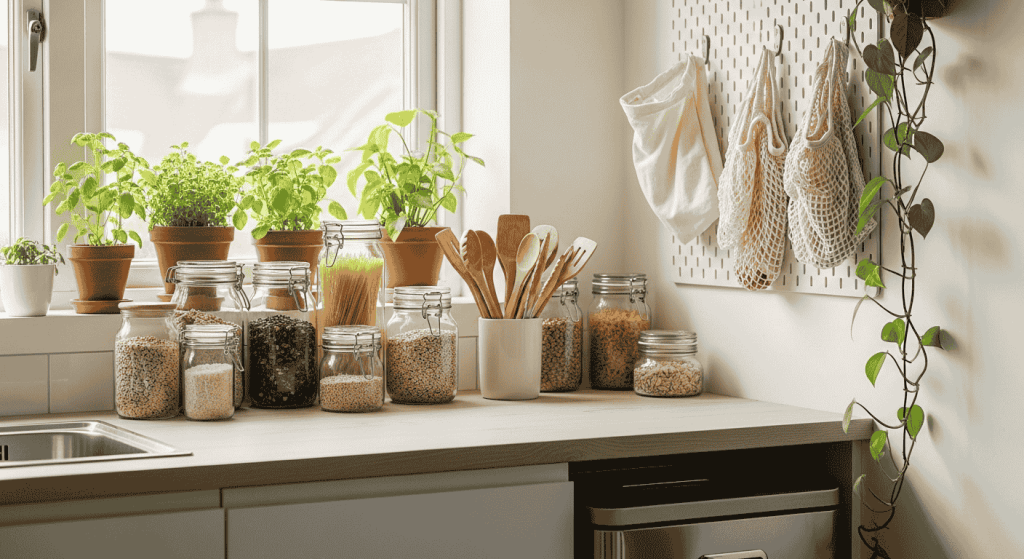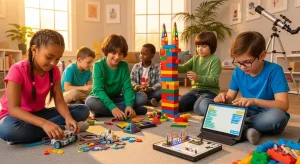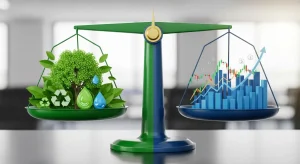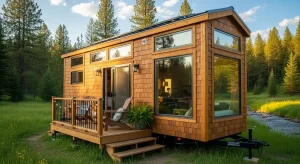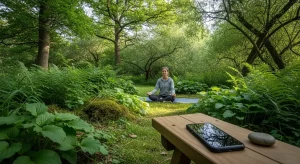Introduction: Why Zero-Waste Living Matters
In an age of climate change, pollution, and overconsumption, adopting a zero-waste lifestyle is one of the most impactful choices you can make. But let’s be honest — going completely zero-waste overnight sounds intimidating. That’s why this beginner’s guide to zero-waste is here to make the transition simple, practical, and even fun.
Zero-waste doesn’t mean perfect. It means striving to reduce waste at home, make sustainable swaps, and choose eco-friendly habits that lessen your environmental footprint over time.
What Is Zero-Waste Living?
Zero-waste living is a lifestyle that encourages minimizing landfill waste by reusing, recycling, and refusing unnecessary consumption. The core goal is to send as little trash as possible to landfills or incinerators.
The 5 R’s of Zero-Waste:
Refuse what you don’t need
Reduce what you do need
Reuse what you already have
Recycle what you can’t refuse or reuse
Rot (compost) what’s left
By following these principles, even beginners can make meaningful change and contribute to a sustainable lifestyle.
Affordable Mental Health Apps That Actually Work
Getting Started: Zero-Waste Living for Beginners
You don’t have to throw everything away and buy bamboo forks. The journey to zero-waste for beginners is about conscious decisions, small changes, and steady progress.
Step 1: Conduct a Waste Audit
Track what you throw away for a week. This helps identify the biggest sources of your waste (e.g., food packaging, coffee cups, bathroom items).
Step 2: Start with Easy Zero-Waste Swaps
Replace disposable items with reusable alternatives. Here are some beginner-friendly, affordable ideas:
| Disposable Item | Zero-Waste Swap |
|---|---|
| Plastic water bottle | Reusable stainless steel bottle |
| Paper towels | Washable cloth rags |
| Grocery bags | Reusable tote bags |
| Plastic toothbrush | Bamboo toothbrush |
| Cling film | Beeswax wraps |
Step 3: Shop Smart & Bulk When Possible
Shopping in bulk reduces packaging waste. Bring your own containers or bags when buying:
Rice, grains, and pasta
Nuts and seeds
Herbs and spices
Cleaning products (from refill stations)
Look for eco-friendly stores or online marketplaces that support zero-waste living.
Step 4: Compost Your Food Scraps
Food waste is a huge contributor to methane emissions in landfills. Home composting is one of the best sustainable lifestyle tips for beginners.
Compost items like:
Fruit & veggie peels
Coffee grounds
Eggshells
Tea bags (plastic-free)
AI Tools That Make Remote Work Easier
Step 5: Make Your Own Cleaning & Personal Care Products
Ditch harmful chemicals and plastic packaging by making simple DIY products such as:
All-purpose vinegar + lemon cleaner
Baking soda deodorant
Coconut oil lip balm
These not only reduce waste but are safer and cheaper, too.
The Mental Shift: Progress, Not Perfection
Remember, the zero-waste lifestyle is a journey, not a destination. It’s about becoming more mindful of consumption and making consistent efforts. Celebrate small wins — whether that’s skipping a plastic straw or composting for the first time.
Top 5 Affordable Zero-Waste Essentials for Beginners
| Product | Why It’s Useful |
|---|---|
| Reusable shopping bags | Eliminate single-use plastic bags |
| Stainless steel water bottle | Keeps drinks hot/cold, replaces plastic |
| Safety razor | Zero-waste alternative to plastic razors |
| Bamboo toothbrush | Compostable handle, plastic-free oral care |
| Beeswax wraps | Replace plastic wrap for food storage |
FAQs About Zero-Waste Living
1. Is zero-waste living expensive?
Not necessarily. While some zero-waste swaps may cost more upfront, they save money over time (e.g., reusable items replacing disposables). Many zero-waste habits like composting, repurposing, and DIY cleaning are free or cost-effective.
2. Can I still live zero-waste if I don’t have access to bulk stores?
Absolutely. Focus on reducing waste at home, choosing reusable items, avoiding over-packaged goods, and composting. You don’t need access to everything to make a difference.
3. How do I stay motivated on a zero-waste journey?
Follow zero-waste influencers, join community groups, track your progress, and celebrate your sustainable wins. Progress is more powerful than perfection.
Conclusion: Small Steps Create Big Impact
Zero-waste living for beginners is all about starting where you are, using what you have, and doing what you can. You don’t need to be perfect — just be intentional. Even the smallest changes, when done collectively, can lead to a cleaner, greener future.
Let your journey toward a sustainable lifestyle begin today.

